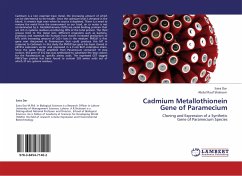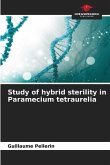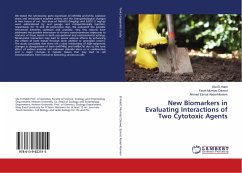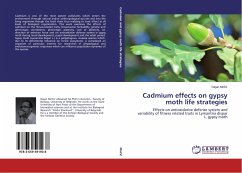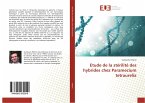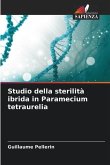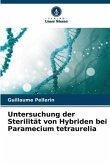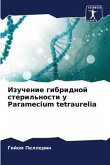Cadmium is a non essential trace metal, the increasing amount of which can be detrimental to the health. Once the cadmium level is elevated in the blood, it remains high even when its source is depleted. There is a need to remove the metal from the environment so our food, air or water is not contaminated by it. Metallothioneins (MTs) are metal binding proteins that are rich in cysteine residues constituting 30% of the total protein. The thiol groups bind to the metal ions. Different organisms such as bacteria, protozoa and mammals like humans have shown increased production of MTs with increasing amount of Cd2+-ions in the medium. PMCd1 is first gene ever discovered in Paramecium that could produce this MT in response to Cadmium. In this study the PMCd1syn gene has been cloned in pET41a expression vector and expressed in a E.coli BL21-codonplus strain. Since the gene PMCd1 amplified from Paramecium contained 10 stop codons, this gene of 612 bps was synthesized to substitute the stop codons for the Paramecium sp. specific amino acids. The expressed GST tagged PMCd1syn protein has been found to contain 203 amino acids out of which 37 are cysteine residues.
Bitte wählen Sie Ihr Anliegen aus.
Rechnungen
Retourenschein anfordern
Bestellstatus
Storno

